The judicial investigation into the election funding scandal that has become known as the Bygmalion affair is gathering speed. In recent days six people have been placed under formal investigation by judges probing the affair. Three of them are senior figures at the Bygmalion communications firm and its events subsidiary at the centre of the scandal,while the other three are former senior officials in the principal opposition party, the UMP. One of those officials is Éric Cesari, the conservative party's former managing director who is notably close to former president Nicolas Sarkozy and regularly described as the latter's “spy in the camp”.
The examining magistrates in charge of the investigation - Serge Tournaire, Renaud Van Ruymbeke and Roger Le Loire - are looking into suspected crimes of “forgery”, the “use of false documents”, “abuse of trust” and “attempted fraud”. Under French law, being placed under investigation is a legal status one step short of charges being brought, and must be justified by “serious or concordant” evidence of wrongdoing.
The claims relate to the funding of Nicolas Sarkozy's 2012 presidential election campaign, during his eventually unsuccessful bid for a second term in office. The communications firm Bygmalion and its subsidiary Event & Cie were tasked with organising many of the political events for team Sarkozy. But there was apparently concern within the Sarkozy camp that they were spending money so fast on the campaign that they would smash the 22.5 million-euro spending limit to which each candidate was subject. Rather than billing the Sarkozy campaign for all of the work it had done, Event & Cie instead sent invoices to the UMP itself, either grossly inflating the cost of work they had actually carried out for the party or even in some cases charging for events that did not take place.
Thus the UMP ended up footing the bill for much of the Sarkozy campaign, to avoid the latter falling foul of the election funding rules. In all, Event & Cie carried out 21.2 million euros of work for the Sarkozy team, but only 4.3 million euros of this appeared on the election accounts. The rest, close to 17 million euros, was secretly and unlawfully billed to the UMP. Thus the Sarkozy campaign in reality cost close to 39 million euros, way above the 22.5 million euro limit.
The existence of a fake invoicing scam appears clear. The fraudulent system was first publicly confirmed by Bygmalion’s own lawyer, Patrick Maisonneuve, during a press conference in May, when the company’s offices were searched by police. “There were indeed fake invoices made out at the UMP’s request, and even imposed on the company Bygmalion by the UMP, to conceal the campaign expenses of Nicolas Sarkozy,” he said. Later that same day, in a tearful interview on BFM-TV, the deputy director of Sarkozy’s 2012 campaign, Jérôme Lavrilleux, admitted the illegal double book-keeping.
Yet vital questions remain. The most important of these is precisely who knew about the scam. Were only party officials and senior figures at the companies in the know? Or did the scandal go even higher, to the level of senior politicians? Nicolas Sarkozy claimed last month that he had not even heard the name of Bygmalion until after the election. However, shortly after those comments, his prime minister from 2007 to 2012, François Fillon, said that while in office he personally had “often seen that Bygmalion was a company that regularly worked with the UMP”.
Meanwhile in a summary report written in June by the French police anti-corruption squad, the Office central de lutte anticorruption, based at Nanterre, west of Paris, officers observed: “Managers at Event & Cie, the UMP and Nicolas Sarkozy's presidential campaign seem inextricably linked to one another.”
There are also reports that the falsification of invoices between Bygmalion and the UMP started before the 2012 presidential election campaign. French weekly Le Journal du Dimanche reported on October 4th, 2014, that investigators had found invoices dated from January 2012 that related to work Event & Cie had carried out for the UMP in 2011. These invoices were for lower amounts than the sums eventually paid by UMP for the work done. A senior figure at Event & Cie claims this was because the UMP's communications department had overspent in 2011 and wanted to hold over some of the bills to the following year, 2012.
Here Mediapart offers a guide to some of the key figures in the affair, from the UMP and the two companies, including those who have now been placed under formal investigation.
- Guy Alvès, co-founder of Bygmalion, was placed under investigation on October 1st. 2014, for “complicity in forgery and use of false documents”.
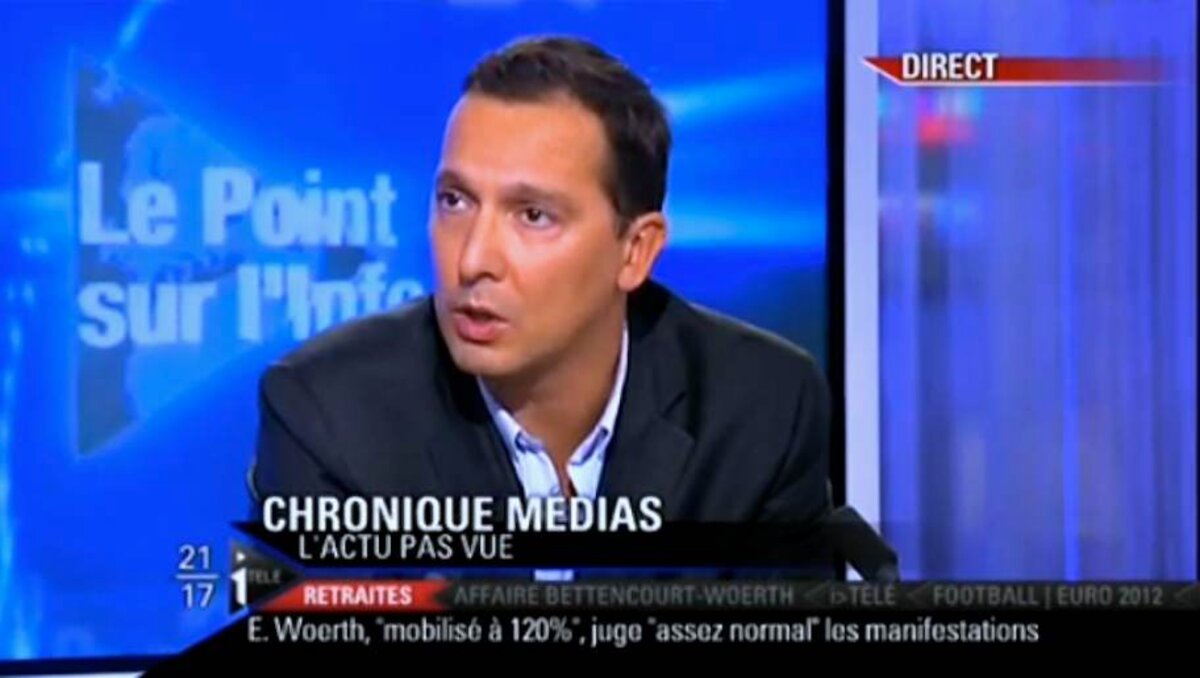
Enlargement : Illustration 1

It is down to Alvès that the saga that initially began as an affair over false invoicing of the UMP has become one involving Sarkozy's election accounts. The co-founder of the communications firm found himself isolated when, at the beginning of May, the newspaper Libération revealed that the company had sent false invoices for millions of euros to the UMP in 2012, using the pretext of invented political conventions (Mediapart published these invoices here). This close ally of the then-head of the UMP, Jean-François Copé, then counter attacked. Alvès's lawyer Patrick Maisonneuve revealed live on television that this illegal stratagem had in reality been used to pay Bygmalion for the cost of a whole series of of political meetings organised for the presidential candidate Nicolas Sarkozy during the campaign.
Alvès told investigators that he had little choice but to go along with the false invoice scam. “The choice was either to accept or to sink my company, even though I had just done my job," he said. "I was trapped."
In July this year his company finally went into compulsory liquidation. According to internal accounts seen by Mediapart, Event & Cie received 4.9 million euros (taxes not included) from the 2012 presidential campaign, before deductions for internal charges. In that year the Bygmalion subsidiary returned a pre-tax profit of 4.66 million euros (a profit margin of 23.1%) and a post-tax profit of 3.07 million euros.
The version of events given by Guy Alvès will now be checked point by point, and euro by euro, by the judges to ensure that it is not hiding an even more outlandish scenario; that some of the money amassed by Bygmalion was used to fund a political slush fund. This allegation has been regulalrly heard since the summer, fuelled by rivals of Copé, who was head of the UMP at the time but who quit in late May as the election finance scandal grew. Copé's opponents point out that Guy Alvès was his chief of staff from 2004 to 2007, before taking on the role of treasurer for Copé's own micro-party Génération France. Under the terms of Guy Alvès's release from custody - having been placed under formal investigation - he is not allowed to have any contact with Copé.
Bastien Millot, co-founder of Bygmalion, was placed under investigation on October 1st. 2014, for “complicity in forgery and use of false documents”.
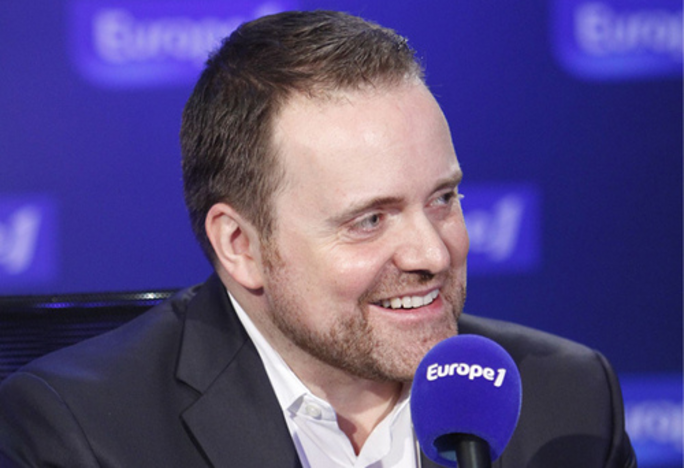
Millot says that he has “done absolutely nothing wrong” for the simple reason that he had “no responsibility at all” in relation to the 2012 campaign. According to Bastien Millot, the investigators who are trying to work out the chain of responsibility are going down a blind alley in trying to link him with the affair. “Some senior figures, including important ones, in the 2012 presidential campaign are trying to paint themselves as victims even though they are doing so rather crudely and a little too hastily,” Millot told the press after he was released from custody on October 1st.
Then in an interview with French wxeekly news magazine L'Express on October 7th, Millot cast doubt on Nicolas Sarkozy's claims he knew nothing of the affair or even the existence of Bygmalion. “It's certainly the candidate who signs the campaign accounts at the end, for which he has a legal and financial responsibility. It's therefore difficult to imagine that he [Sarkozy] signed them without looking at them,” he said. He added that it was also “difficult to believe that Nicolas Sarkozy wasn't aware of anything”.
Millot, also a close ally of Copé who has worked in the latter's private office during all the political posts he has held, left his position at Bygmalion on August 31st. 2013, and became a lawyer in the spring of 2014. In April 2014 he was placed under investigation in a separate case for alleged “receipt of the proceeds of favouritism” to the detriment of state-owned television company France Télévisions where he occupied various positions between 2005 and 2010. In October 2004 he was also found guilty of “misuse of public funds, complicity in forgery and complicity in the use of false documents”. These offences relate to the period from March 2001 when he was deputy mayor for the town of Beauvais north of Paris.
While he insists he had no role at all in Nicolas Sarkozy's 2012 campaign, Bastien Millot did win some lucrative contracts for his company from the UMP group in the National Assembly, the lower house of French parliament, which was run by Copé's allies. Bygmalion was paid a total of 4.5 million euros by the group between 2008 and 2012 (see articles in French here and here).
Franck Attal, deputy managing director at Event & Cie was placed under investigation on October 1st. 2014, for “forgery and use of false documents”.
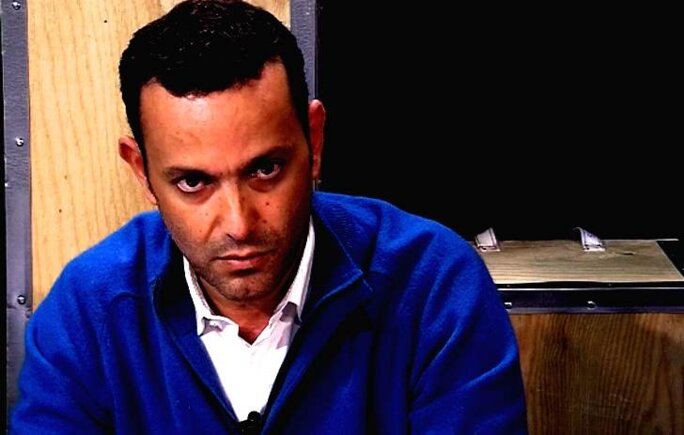
Enlargement : Illustration 3

It was the way that Event & Cie's operational manager worked that best captures the frenetic nature of Nicolas Sarkozy's campaign, with its improvisations and its frantic and sometimes capricious behaviour. Attal was in charge of hiring a television director at huge cost, ordering van loads of flags, and booking halls at the last minute. For the political rally that he organised at Toulouse in south-west France, Franck Attal provided 900,000 euros worth of services on behalf of his firm, of which just 183,000 euros were recorded in the candidate's campaign accounts. For a rally at Clermont-Ferrand in central France he ran up costs of 623,000 euros, of which only 155,000 euros appeared in the election accounts.
Franck Attal has told investigators how – and, above all, when – the decision was taken in 2012 to disguise Nicolas Sarkozy's accounts: “At the beginning of April [I] met Fabienne Liadzé [Editor's note: the UMP party's finance director, see below] Jérôme Lavrilleux [Editor's note: deputy director of Sarkozy's campaign, see below] and Éric Cesari at the UMP about this issue. And it was there that they told me that the pace of meetings was going to increase still further, but that there was a problem of a financial nature linked to the campaign’s [spending] limits which were going to be completely exceeded...Jérôme...asked me to make false invoices. I had the impression that all those taking part in this meeting were trapped. From that time the accountant at our place, Matthieu Fay, worked with Fabienne Liadzé.”
In this affair of false invoicing, the timing of events is crucial. For from the start, Jérôme Lavrilleux has claimed that it was only after the presidential election, at the time when the UMP candidate's campaign accounts had to be lodged with the electoral authorities, that the decision was taken to doctor them. This version of events fits rather better with the idea that Nicolas Sarkozy - who had just announced he had “retired” from politics - could have been kept in ignorance of what happened.
- Matthieu Fay, Bygmalion's internal accountant who was questioned in custody but not placed under formal investigation.
Matthieu Fay, who was apparently asked to carry out in the background the plan decided upon by his superiors and the UMP, was laid off in May 2014. It was Fay who produced the Excel spreadsheets (seen by Mediapart) with several columns for each of Nicolas Sarkozy's rallies: one for the price officially billed to the candidate, another recording the true cost.
Fay told investigators how all these bogus accounts files relating to the election campaign had been sent “to the UMP by messenger after the second round [Editor's note: of the presidential election which Sarkozy lost to François Hollande]”. He calculated the true cost of the services provided by Event & Cie to Sarkozy's campaign at 18.9 million euros – of which only 4.3 million euros were recorded in the campaign accounts.
'My job is to protect my boss'
- Jérôme Lavrilleux, deputy director of Nicolas Sarkozy's campaign in 2012
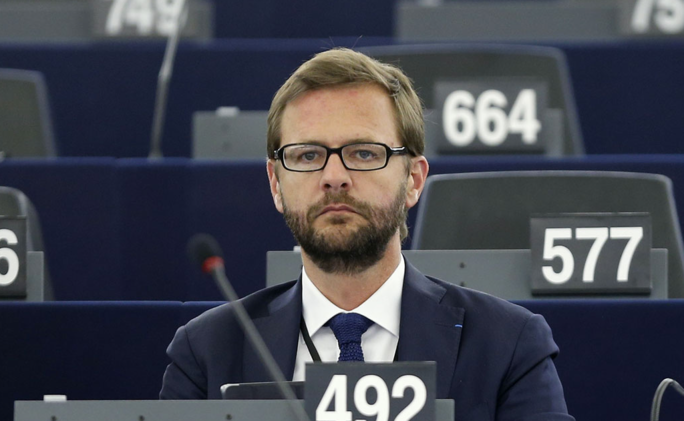
Enlargement : Illustration 4

In a long and sometimes tearful television interview on BFM-TV at the end of May, Jérôme Lavrilleux unexpectedly admitted that a system of false invoices had been set in place. But he explicitly cleared both his mentor Jean-François Copé, for whom he had been chief-of-staff, and Nicolas Sarkozy. “I informed several people of my feeling that we would struggle to settle all that [Editor's note: the invoices for the political meetings]. I did not inform Nicolas Sarkozy or Jean-François Copé of this,” he said in the TV interview.
When asked by investigators in June if the candidate himself had been informed of the set-up, Jérôme Lavrilleux repeated that he had “never spoken of this issue with Nicolas Sarkozy” and that “in [my] opinion it was impossible that he had been informed”.
But when they asked him if the candidate had been informed of the general state of campaign spending, Lavrilleux replied that he had “no idea” about that. He explained that the decision to put in place a system of double accounting had been taken with four others from the UMP and Bygmalion: Éric Cesari, Fabienne Liadzé, Franck Attal and the campaign director Guillaume Lambert.
In detailing the working of the campaign’s strategic meetings, at which Sarkozy was present, Jérôme Lavrilleux implied that Guillaume Lambert could very well have passed the information to the candidate during their daily meetings. “This organisation [structure] in the form of an hourglass meant that everyone started from the principle that what Guillaume Lambert said to us was coming from the strategy meeting and that what we said to Guillaume Lambert was going to be passed up to the strategy meeting,” he said.
However, in relation to Jean-François Copé, Jérôme Lavrilleux's story has not changed one jot. He said he “did not inform him” because his “job” as chief-of-staff was “to protect [my] boss”, said Jérôme Lavrilleux, who was elected as a Member of the European Parliament (MEP) in May but who has since been suspended from the UMP.
- Guillaume Lambert, director of Nicolas Sarkozy's 2012 campaign.
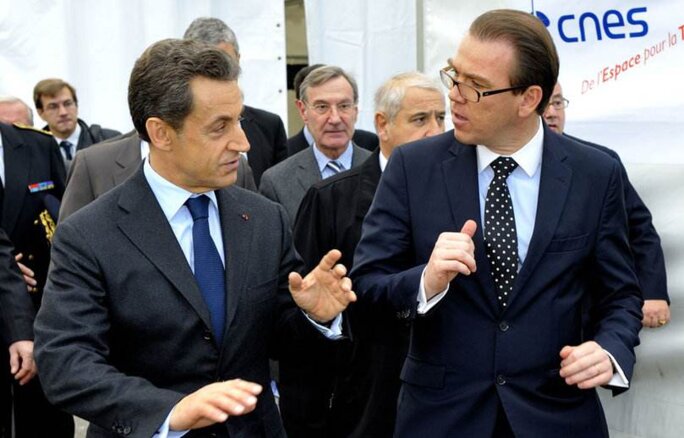
Enlargement : Illustration 5

Jérôme Lavrilleux may have suggested that the campaign director must have known about the invoice fraud, but Guillaume Lambert denies that completely. In a letter addressed to the Paris public prosecutor's office and dated June 12th, 2014, of which Mediapart has seen a copy, Lambert gives his version of events. “I was never informed by anyone of such an arrangement, any more than I solicited it or accepted it,” wrote Lambert who is now a prefect – a senior state official – in the Lozère area of southern France.
He maintains, moreover, that Jérôme Lavrilleux had “drawn [my] attention to the question of controlling spending on just one occasion”. This was on April 28th, 2012, a few hours before the Sarkozy rally at Clermont-Ferrand. Lavrilleux had sent him a text: “JFC [Editor's note: Jean-François Copé] is not coming to Clermont. He went there last week. Hiring and equipping a second hall is a question of cost. We have no more money. JFC has spoken about it to PR [Editor's note: PR = président de la République, i.e. Nicolas Sarkozy].”
That text message could suggest that Nicolas Sarkozy was informed about the financial issues. But Guillaume Lambert disputes this. “This message means that no other request other than those budgeted for could be ordered,” he claimed. In other words, it meant he had done what was required to ensure that the legal spending limit was respected, right to the end, said Lambert.
- Nicolas Sarkozy, the candidate.
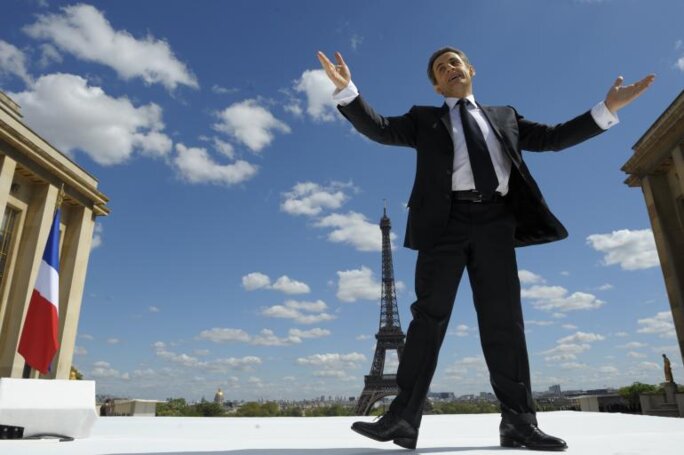
Enlargement : Illustration 6

Questioned on France 2 television on September 21st, Nicolas Sarkozy maintained that he had “learnt of Bygmalion's name a long time after the presidential campaign”. He repeated this in an interview published in Le Figaro Magazine on October 2nd. However, several elements raise doubts about this assertion. Firstly, there were the comments made on October 2nd by his former prime minister, François Fillon, who said he had “often heard talk of Bygmalion”, and had been aware that they worked regularly with the UMP, even though he had not himself worked on the organisation of the 2012 campaign. Then, in an unsuccessful attempt to help the former president by seeking to clarify his words, his former justice minister Rachida Dati told Europe 1 radio that: [Nicolas Sarkozy] certainly knew the protagonists. Everyone knew!”
In addition, Le Monde claims that Nicolas Sarkozy was informed that expenditure was rapidly rising by the campaign’s accountant, Pierre Godet. In a note written on April 26th. 2012, the accountant had warned “candidate Nicolas Sarkozy” of “the extremely serious circumstances of a possible exceeding of the electoral spending limit”.
But this note did not inform the candidate of the real level of expenditure. Pierre Godet gave the figure of the provisional costs - or the costs already committed - at the time of the first round of voting: 18,399,000 euros. “This sum is above the last budgeted one (16,243,000 euros) and above the limit of required spending for the first round (16,851,000),” warned the accountant, calling for restraint. Yet according to Mediapart's calculations, the expenditure linked to the political meetings organised by Event & Cie alone had already reached more than 16 million euros by the eve of the first round of voting.
There is increasing speculation that Nicolas Sarkozy will be questioned by the judges. As reported by L'Express, three of the people so far placed under formal investigation - Éric Cesari, Fabienne Liadzé and the party's former head of communications Pierre Chassat – have all been banned from any contact with Sarkozy, as well as with Jean-François Copé.
- Philippe Briand, the 2012 campaign treasurer

Enlargement : Illustration 7

This UMP Member of Parliament (MP) and boss of a large private company was chosen as treasurer by Nicolas Sarkozy in February 2012. “Nicolas told me: 'At least with you I'm sure you won’t take my money!'” Brand said later. When the Bygmalion election invoice scandal first broke in May 2014 the MP said he “fell off his chair” then “fell to the floor”. Briand says that the invoices of the meetings that were handed to him during the campaign were “already 40% above [those] of François Hollande!”, implying that he had no reason to suspect that the true cost was actually being hidden and passed on to the UMP. “With Dominique Dord [Editor's note: the UMP party treasurer until the end of 2012] we're going to form the country bumpkins' club to whom no one ever speaks!” adds Briand, who insists that when he is questioned by the judges he will be able to assure them that he saw and heard nothing about the invoice scam.
Briand says that his role during the 2012 campaign was to “sign the signature book that the accountant brought me”. He told Mediapart: “There was an organiser of expenses and a paymaster. I was the paymaster and it was Guillaume Lambert who sent me the invoices. It was he, too, who ordered the meetings, even though I think he had delegated that task to Jérôme Lavrilleux.” Briand swears that the first he knew about the scandal was on the day that it was made public.
Sarkozy's 'spy in the camp'
- Jean-François Copé, former president of the UMP.

Enlargement : Illustration 8
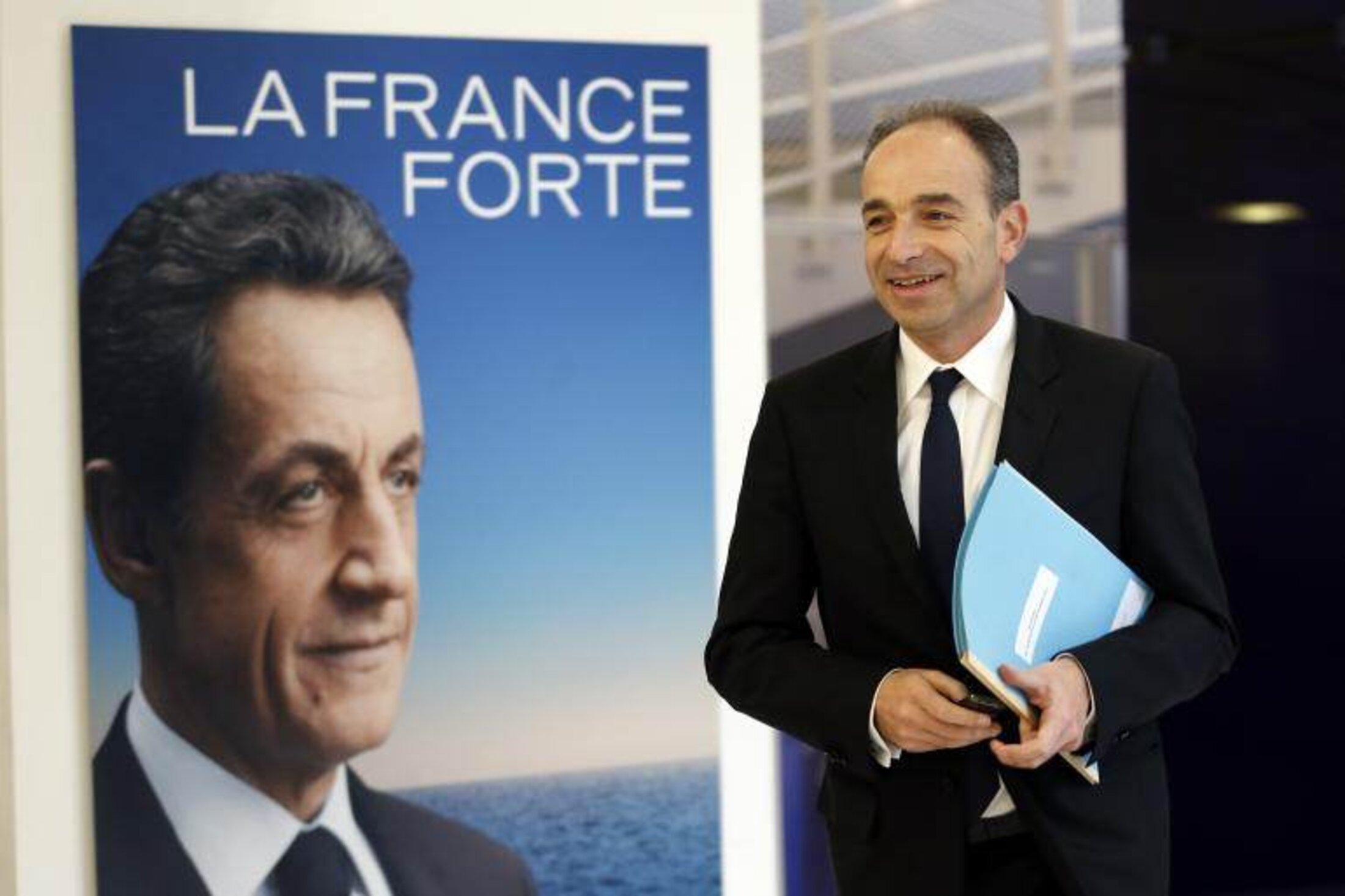
Between Le Point magazine's first partial revelations about the Bygmalion affair in February 2014 and his own resignation in late May – though he stayed in office until mid-June – Jean-François Copé's line has changed considerably. “It's a completely squalid stitch-up, a tissue of lies,” was the view of the then-president of the UMP in February when a limited version of the story first broke. He also attacked what he called a “hateful press campaign” and a “witch hunt”.
After the more detailed revelations published by Libération on May 14th, Copé produced a new line of defence: he had never had knowledge of the false invoicing system but he now had “some questions” following the newspaper's revelations. Then, on the evening he resigned, Copé told TV station TF1's evening news bulletin that his staff had “abused his trust”.
However, on Monday October 10th, Copé's claim that he knew nothing until a meeting of the UMP on May 16th. 2014 about the use of the false invoice system to prevent Sarkozy's campaign from overspending, was undermined by a report in Le Monde. It said that at the end of February 2014 and then again on March 2nd, 2014, not long after after Le Point's initial revelations, Guy Alvès, Bastien Millot and and Jérôme Lavrilleux all met at the home of Copé's political advisor Guillaume Bazaille. Moreover, it seems that Copé himself was present at the second meeting.
- Éric Cesari, former managing director of the UMP, was placed under investigation on October 4th. 2014, for “forgery, use of false documents” and “breach of trust”.
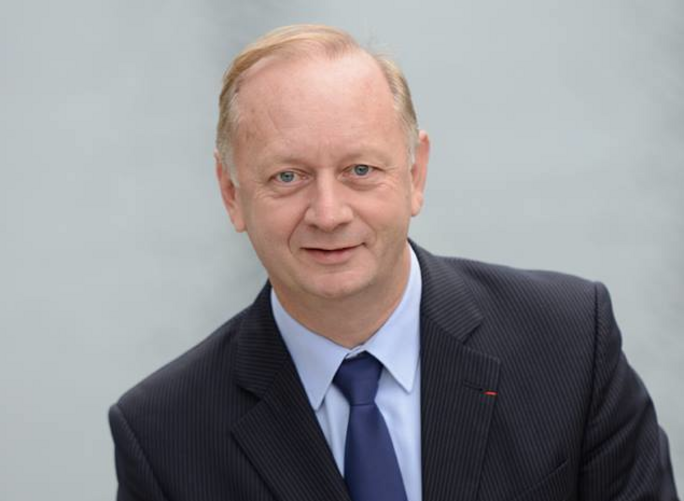
Enlargement : Illustration 9

So far Cesari, who was placed under investigation on October 4th. 2014, and who since mid-July has been involved in proceedings with the UMP after being sacked for serious misconduct, has kept a low profile since the Bygmalion scandal broke. In a rare public comment on the affair, he told L'Express that he had not taken part in “any meeting devoted to campaign accounts”, contrary to what both Jérôme Lavrilleux and Franck Attal have said. “The only time that I was made aware of the UMP's financial problems was at the time of the resignation of the treasurer Dominique Dord, in July 2012,” said Cesari, who stated that he was not able to “authorise payments”.
According to a report in Libération however, Cesari's name, followed by his signature, is the only one that appears on the estimates for bogus political conventions sent by Event & Cie to the UMP. Moreover, the former party treasurer Dominique Dord has stated since May that each cheque signature needed to be validated by four superiors in the party, among them Cesari himself. Jérôme Lavrilleux confirmed this to investigators on June 17th. On forms authorising expenditure “there were therefore the stamps of, where applicable, the head of department, the director of the department concerned, the director of resources [Editor's not: Fabienne Liadzé], the managing director of the departments [Editor's note: Éric Cesari] and of the chief-of-staff, in other words, me”, he said. “Éric Cesari stamped the request at administrative level in the final resort.”
Having been close to the so-called 'Pasqua networks' – referring to the veteran right-wing Gaullist former interior minister Charles Pasqua and his circle of influential friends and associates – Cesari remains one of Nicolas Sarkozy's most loyal followers, often being described as his “spy in the camp” (1). Sarkozy awarded him the Légion d'honneur, France's highest award of civil merit, in 2010. The judges have now banned Cesari from seeing Sarkozy. “Everyone knew that he was guarding the keys of the house for Sarkozy,” a former employee at the UMP headquarters in Paris told Mediapart in June. “He went to the Elysée regularly to get his orders, including during the presidential campaign. He would never have taken an important decision without consulting Sarkozy first.”
- Fabienne Liadzé, former director of administration and finance at the UMP, was placed under investigation on October 4th. 2014, for “forgery, use of false documents” and “breach of trust”.
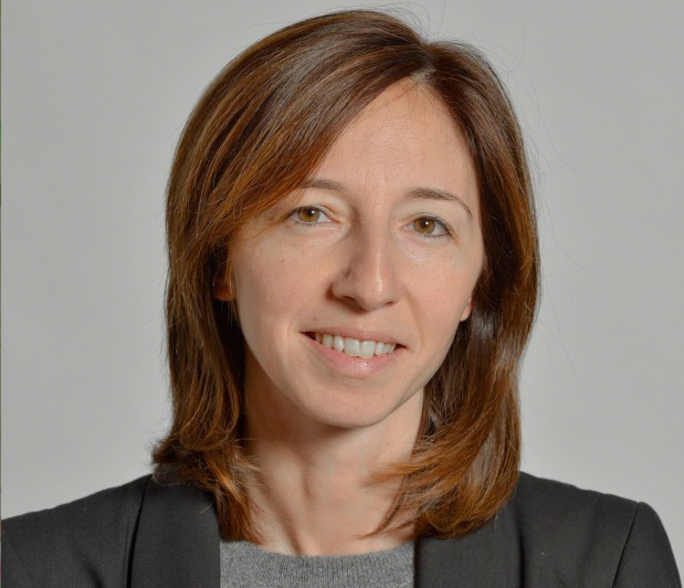
Enlargement : Illustration 10

Having been recruited to the UMP by former minister Éric Woerth in her capacity as a director of human resources, Fabienne Liadzé was propelled into the post of director of administration and finance (DAF) by Jean-François Copé, before being removed by the party's temporary leadership in July on the grounds of serious misconduct. Liadzé was elected last March as a town councillor at Issy-les-Moulineaux, a suburb south-west of Paris, on the ticket of local mayor and MP André Santini from the centrist UDI party.
Jérôme Lavrilleux told investigators that Liadzé was one of two people - the other was Éric Cesari – in charge of the authorisation of the UMP's expenditure orders. “At the end of May 2012, I think, Éric Cesari and Fabienne Liadzé came to see me in my office at the UMP after a meeting they had held with Guillaume Lambert and Franck Attal, to speak about the campaign accounts,” said Lavrilleux. “They pointed out to me then that it was impossible to put all the expenditure in the campaign accounts and that the excess would have to be allocated to the UMP account.”
After her client had been placed under investigation, Liadzé's lawyer Solange Doumic said: “[She] is happy to be able to explain herself, but has played absolutely no role and has neither committed nor seen the committing of any offence.”
- Pierre Chassat, former director of communications at the UMP, was placed under investigation on October 4th. 2014, for “forgery, use of false documents” and “breach of trust”.
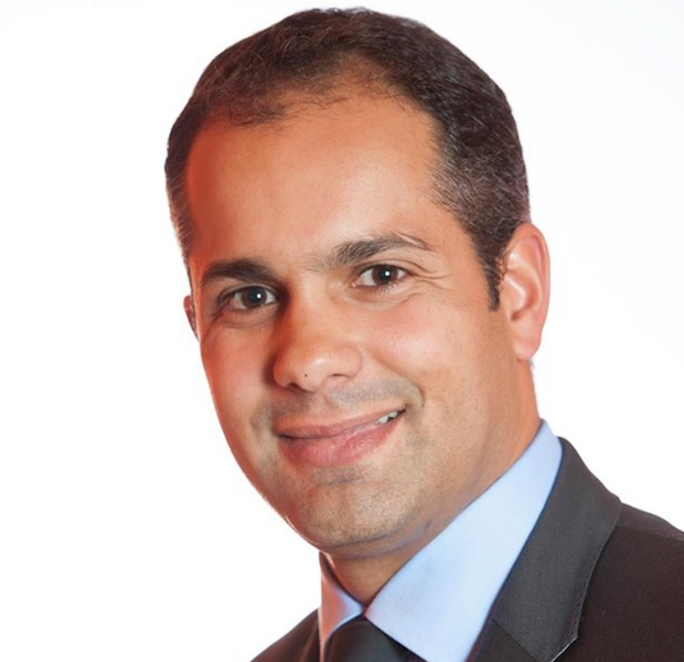
Enlargement : Illustration 11

Chassat, who was also Jérôme Lavrilleux's deputy in Jean-François Copé's private office, was dismissed by the UMP last July for serious misconduct. A graduate of the prestigious Sciences-Po Paris university, he knew the co-founders of Bygmalion well, having worked alongside them under Copé in the two ministerial posts (minister for relations with Parliament then budget minister) the latter held between 2002 and 2007. Chassat is also a councillor under the UMP mayor of Levallois-Perret in the northwest suburbs of Paris, Patrick Balkany.
Chassat's lawyer Paul-Albert Iweins said: “My client has not been involved in any offence.”
----------------------------------------------------------------------------
1. The French expression used is “l'oeil de Moscou”, literally meaning “the eye of Moscow”. The expression stems from the era of the Soviet Union where people were asked to spy on their fellow citizens and report back to the communist authorities, but today can refer to anyone who is placed in an organisation or group to keep an eye or 'spy' on people.
--------------------------------------------------------------------------
- The French version of this article can be found here.
English version by Michael Streeter


